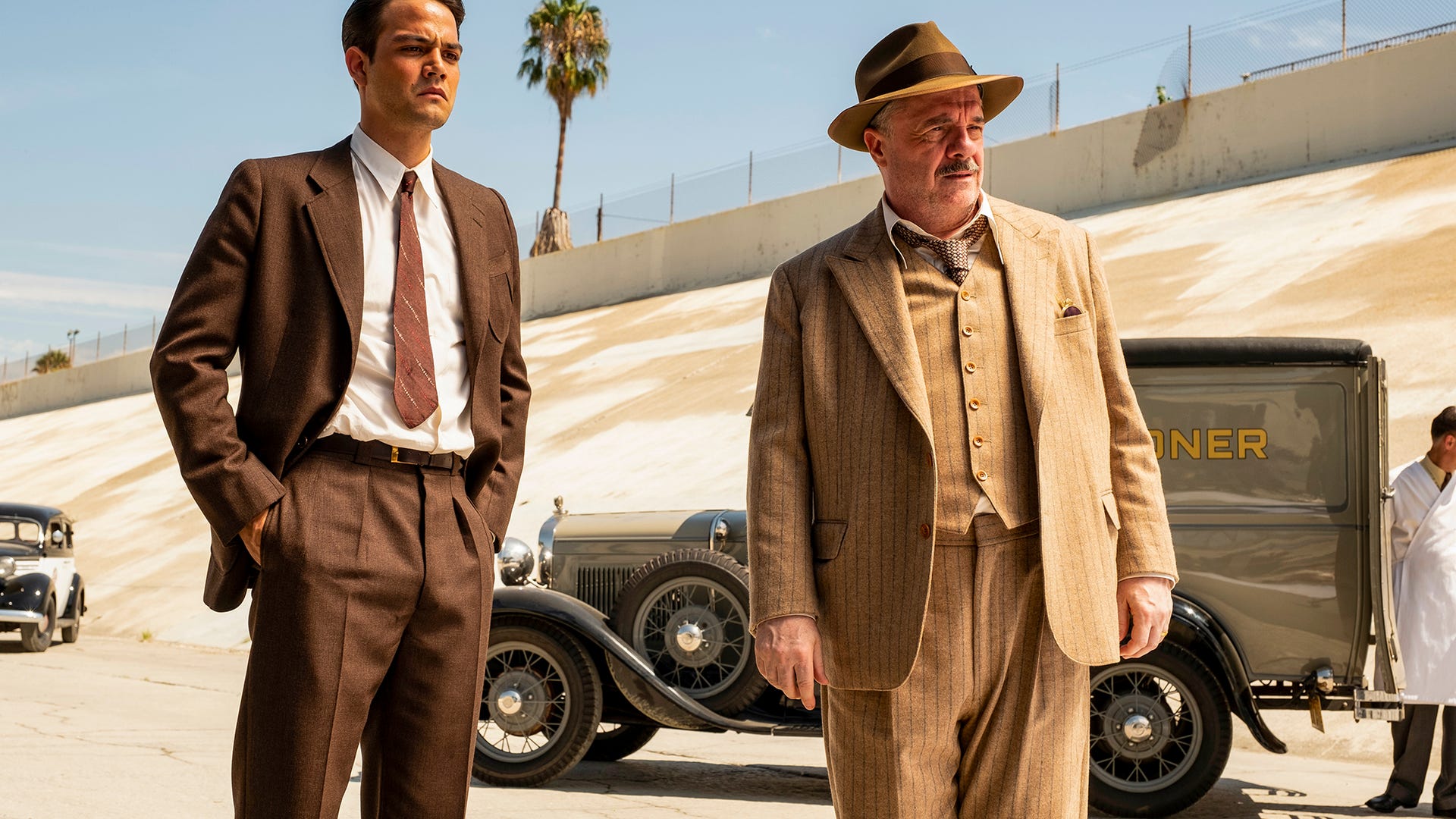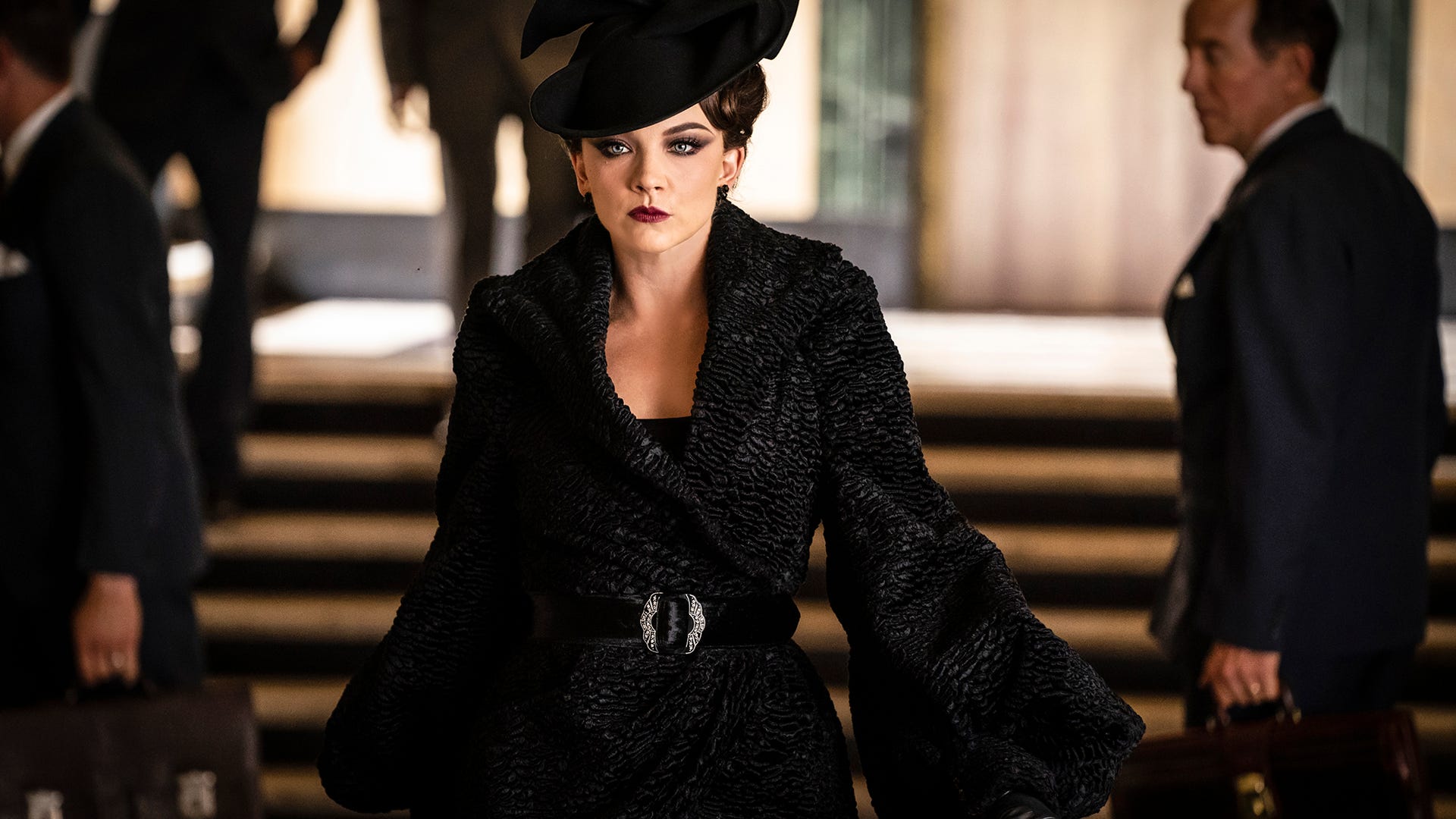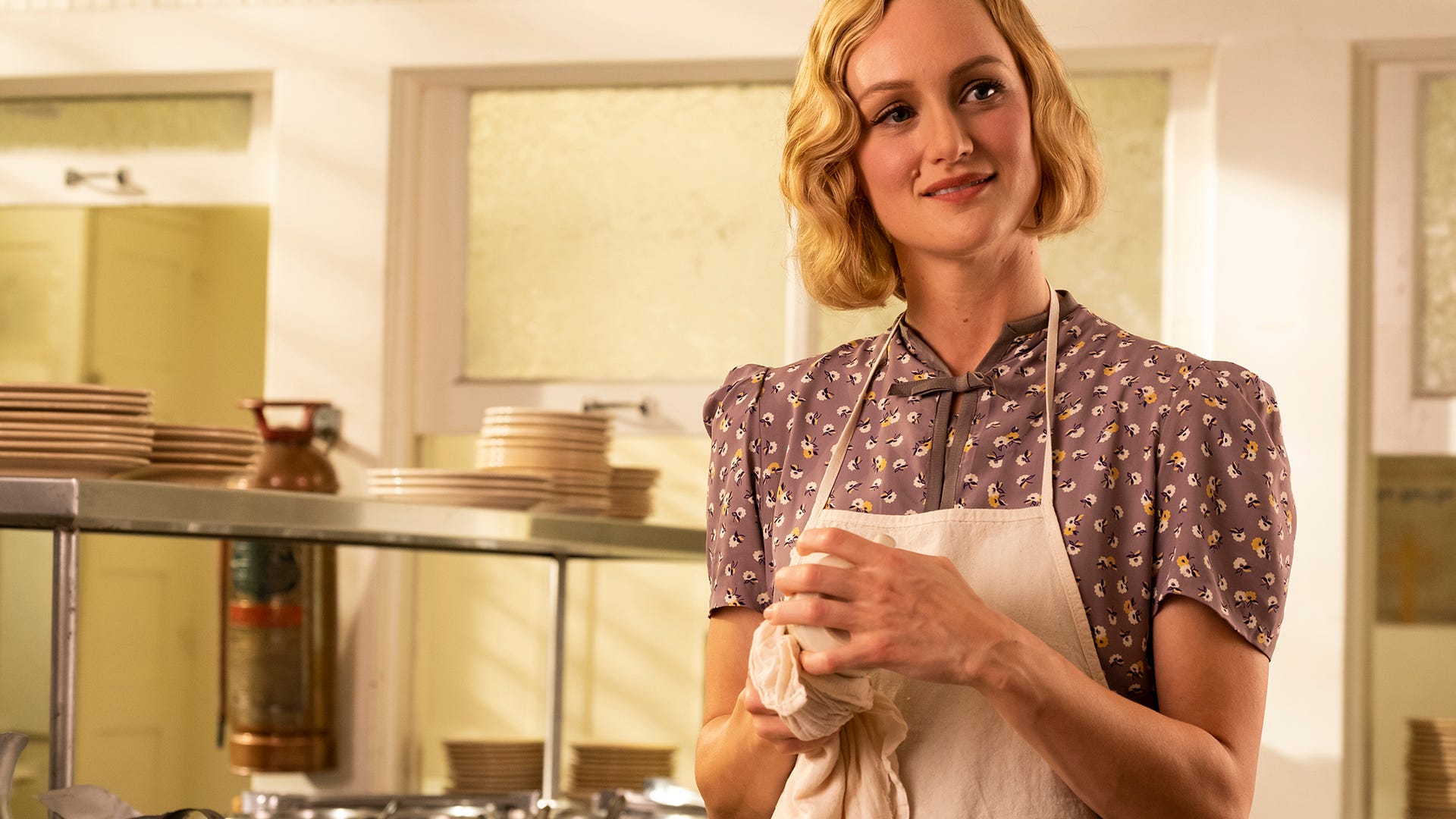Join or Sign In
Sign in to customize your TV listings
By joining TV Guide, you agree to our Terms of Use and acknowledge the data practices in our Privacy Policy.
Penny Dreadful: City of Angels Review: A Fresh, Vibrant Story Should Hook Old and New Fans
What's not to like about watching Nathan Lane solve crime?
The first thing people will talk about when it comes to Penny Dreadful: City of Angels is its title. The new Showtime drama, which premiered April 26, isn't a revival or a spin-off of Penny Dreadful, and it isn't exactly a new chapter in an American Horror Story-type anthology, although if series creator John Logan wants to go in that direction, he's got my blessing. City of Angels, billed as a "spiritual descendent" of original-flavor Penny Dreadful, is also created, written, and executive produced by Logan, and the two shows share a series regular in Rory Kinnear. But beyond that, the new Penny Dreadful is new -- a completely separate story set decades later and half a world away from the gone-too-soon gothic horror. In this one, the characters see the sun.
Some fans of the original series are probably going to take issue with everything City of Angels is not, especially if they go in expecting a continuation of the original story. But I can't argue with what it is: a show that lets Nathan Lane solve crime in the 1930s. City of Angels should appeal equally to fans who loved Penny Dreadful for its moody theatricality (me) and people whose favorite musical is Guys and Dolls with a dash of West Side Story (coincidentally, also me). It's still finding its point of view, but I'm happy to go along for the ride.
Penny Dreadful: City of Angels: Trailer, Premiere Date, Cast, and Everything We Know
Penny Dreadful: City of Angels kicks off with a gruesome murder in 1938 Los Angeles, where tensions are already rising as officials plan to gut a Mexican-American neighborhood to pave the way for the city's first freeway. The murder of a wealthy white family could be the spark that lights the powder keg. The case is assigned to Tiago Vega (Daniel Zovatto), the first Chicano detective in the LAPD, and his partner, Lewis Michener (Lane), a veteran Jewish officer tracking covert Third Reich activity in L.A. on the side. They're an interesting pair: two fundamentally good guys with symmetrical reasons to be cynical. Lane is nothing if not watchable; his snappy noir flair -- his inherent Nathan Lane-ness -- sells the show as a period piece without feeling gimmicky, and the actor is clearly relishing the chance to play with dramatic material. He's well matched in Zovatto, who shades Tiago's vulnerability with just enough darkness to keep him unpredictable.

Daniel Zovatto, Nathan Lane, Penny Dreadful: City of Angels
Justin Lubin, Justin Lubin/SHOWTIME
At the heart of City of Angels is a family drama about Tiago's complicated relationship with his own heritage, which his activist older brother, Raul (Adam Rodriguez), feels he's betrayed by wearing a badge. "Are you a cop pretending to be Mexican," one character asks Tiago, "or a Mexican pretending to be a cop?" Tiago is an outcast in true Penny Dreadful style, a man in limbo between two worlds. He's running from a traumatic childhood encounter with Santa Muerte (Lorenza Izzo), the Angel of Holy Death, who's worshiped by Tiago's proud, unflinching mother, Maria (played to steely perfection by Adriana Barraza). The show's best horror chills come whenever Santa Muerte looms behind the characters, either unable or unwilling to show mercy. She's a curiously numb character by design, but her scenes carry weight.
What gives City of Angels permission to sell itself as a Penny Dreadful story is the supernatural battle playing out in the margins. The drama's main antagonist is Magda (Game of Thrones' Natalie Dormer), a ruthless, shape-shifting demon who takes on human guises in order to cause trouble. She says she's out to prove to Santa Muerte, her sister, that human nature is inherently evil, but Magda also starts chaos just because she likes it. Dormer is a chameleon in the role, and it's a blast to watch her rotate from charismatic to delicate to mousy to gangster-chic, manipulating everyone in her path.
Which only makes it more frustrating that Magda, in her pure demon form, feels tacked on to the series, changing the rules of the game in ways that don't always feel necessary, except to give the show an excuse to be called Penny Dreadful. The character is the weakest element of the pilot: She's the personification of evil whispering in men's ears, which at this point has become a stale way for genre TV to ask big questions about why people do terrible things. After the pilot, Magda spends most of her time masquerading as different humans, who are engaging on their own. But her big-picture purpose isn't clear yet, at least in the six episodes made available for review.

Natalie Dormer, Penny Dreadful: City of Angels
Justin Lubin, Justin Lubin/SHOWTIMEThe problem is that Magda is not a person but an idea, and City of Angels hasn't yet figured out how to set its ideas apart. The bones are all there -- it's a show about a time of upheaval that mirrors the present, as racism and hatred explode in the face of social change. Naziism and an "America first" mentality are rising in tandem, the wealth gap is shameful, the economy is bad, the police are corrupt; you get the idea. But the parallels don't lead anywhere deeper. I'm still waiting for the show to really find its voice thematically: Yes, this is all happening now, as it happened then. But what does it mean? And is all of the violence caused by Magda created equal?
If City of Angels finds its angle on these questions, the show could be unstoppable. Season 1 of Penny Dreadful was all theme and almost no plot: just a whole bunch of good-looking sad people monologuing in the fog. City of Angels already tells a much more cohesive story; it's a well-plotted, character-driven drama in search of a sharper perspective. Logan's record tells me it can get there. It's a promising sign that the pilot is the least exciting episode out of the first six; once the setup is out of the way, the show gets more harrowing, more entertaining, and weirder, in a good way. In the second episode, for instance, Kerry Bishé makes her debut as Sister Molly, a captivating radio evangelist with an intense energy who dreams of the normal life she can't have. At one point she genuinely cries "Someone so jaunty has no place in my house" about a Popeye toy. It's fantastic.

Kerry Bishe, Penny Dreadful: City of Angels
Justin Lubin, Justin Lubin/SHOWTIME
City of Angels makes the most of being set in 1938 Los Angeles, and its lush world-building is one of the show's purest pleasures. Men in pinstripe suits drive through sunny canyons; beaches are packed with old-fashioned swimsuits; glitzy Beverly Hills mansions sit miles away from dusty barrios and cramped apartments. In the sets, locations, and costumes, the attention to historical detail is rich. My favorite scene of the show so far is a brilliant dance sequence in Episode 3 set in a club called the Crimson Cat, where sexuality is fluid and gender roles fall away. It's very much a John Logan underground: a safe haven that's only tragic because it has to stay hidden.
"L.A. doesn't care who you are when you arrive. It only cares about who you make yourself into," the ambitious city councilman Charlton Townsend (Michael Gladis) suggests in one episode. But Los Angeles is only a blank slate for people with enough privilege. For everyone else, the options are more limited. The things that make these people outcasts can't be writ large in the same way they could on Penny Dreadful (by which I mean no one here is a werewolf), so their otherness is brought down to earth, where the story can get messier. The original series blurred the line between good and evil; this series blurs the line between right and wrong, making it a little less dreamlike and a little more real. But the world of City of Angels is still heightened in interesting ways. The blood, the noise, the music, and the expanse of the horizon all seem like they've been dialed up to 11. It's easy to want to spend time there, squinting into the sun.
TV Guide Rating: 4/5
Penny Dreadful: City of Angels airs Sundays at 10/9c on Showtime. The first episode is available to watch online for free now.
